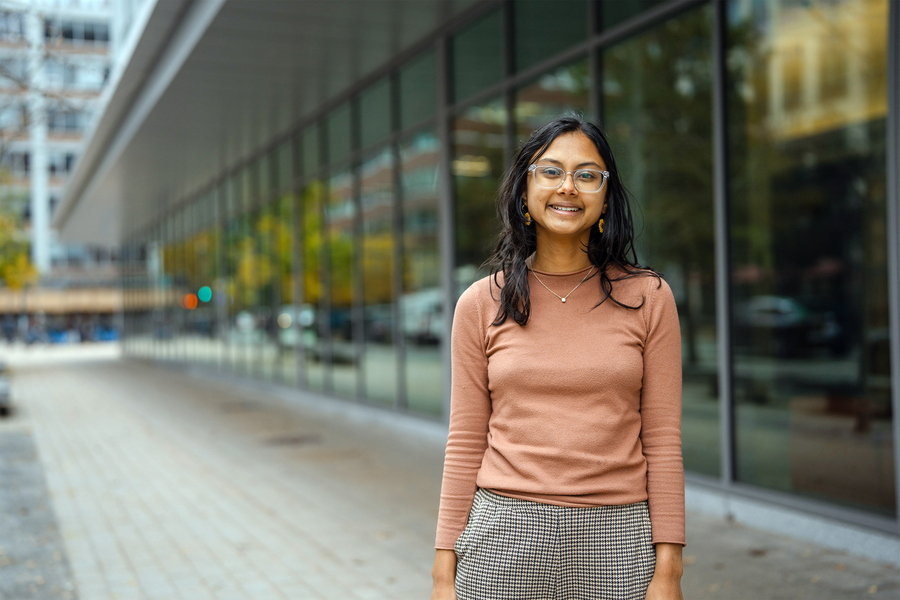PKG Alum Anushree Chaudhuri featured in MIT News!
Anushree was a Summer 2021 Social Impact Intern and participated in the DUSP-PKG Fellowship program. Read more about their intern experience here!

Anushree Chaudhuri has a history of making bold decisions. In fifth grade, she biked across her home state of California with little prior experience. In her first year at MIT, she advocated for student recommendations in the preparation of the Institute’s Climate Action Plan for the Decade. And recently, she led a field research project throughout California to document the perspectives of rural and Indigenous populations affected by climate change and clean energy projects.
“It doesn’t matter who you are or how young you are, you can get involved with something and inspire others to do so,” the senior says.
Initially a materials science and engineering major, Chaudhuri was quickly drawn to environmental policy issues and later decided to double-major in urban studies and planning and in economics. Chaudhuri will receive her bachelor’s degrees this month, followed by a master’s degree in city planning in the spring.
The importance of community engagement in policymaking has become one of Chaudhuri’s core interests. A 2024 Marshall Scholar, she is headed to the U.K. next year to pursue a PhD related to environment and development. She hopes to build on her work in California and continue to bring attention to impacts that energy transitions can have on local communities, which tend to be rural and low-income. Addressing resistance to these projects can be challenging, but “ignoring it leaves these communities in the dust and widens the urban-rural divide,” she says.
Silliness and sustainability
Chaudhuri classifies her many activities into two groups: those that help her unwind, like her living community, Conner Two, and those that require intensive deliberation, like her sustainability-related organizing.
Conner Two, in the Burton-Conner residence hall, is where Chaudhuri feels most at home on campus. She describes the group’s activities as “silly” and emphasizes their love of jokes, even in the floor’s nickname, “the British Floor,” which is intentionally absurd, as the residents are rarely British.
Chaudhuri’s first involvement with sustainability issues on campus was during the preparation of MIT’s Fast Forward Climate Action Plan in the 2020-2021 academic year. As a co-lead of one of several student working groups, she helped organize key discussions between the administration, climate experts, and student government to push for six main goals in the plan, including an ethical investing framework. Being involved with a significant student movement so early on in her undergraduate career was a learning opportunity for Chaudhuri and impressed upon her that young people can play critical roles in making far-reaching structural changes.
The experience also made her realize how many organizations on campus shared similar goals even if their perspectives varied, and she saw the potential for more synergy among them.
Chaudhuri went on to co-lead the Student Sustainability Coalition to help build community across the sustainability-related organizations on campus and create a centralized system that would make it easier for outsiders and group members to access information and work together. Through the coalition, students have collaborated on efforts including campus events, and off-campus matters such as the Cambridge Green New Deal hearings.
Another benefit to such a network: It creates a support system that recognizes even small-scale victories. “Community is so important to avoid burnout when you’re working on something that can be very frustrating and an uphill battle like negotiating with leadership or seeking policy changes,” Chaudhuri says.
Tags: Climate, PKG Alumni, PKG Fellowships, Social Impact Internships
